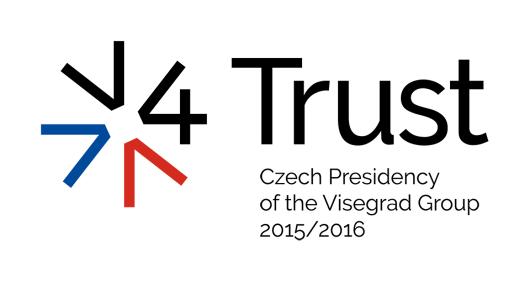
The Visegrad Group Joint Statement on the Western Balkans
13.11.2015 / 16:20 | Aktualizováno: 16.11.2015 / 13:00
(This article expired 30.11.2016 / 01:00.)
The annual meeting of the Ministers of Foreign Affairs of the Visegrad Group (V4) and the Western Balkans took place in Prague on November 13, 2015, under the Czech Republic's Presidency of the V4. The meeting was also attended by the First Vice-President of the European Commission, the Secretary General of the Regional Cooperation Council as well as representatives of Croatia, Slovenia, and the United Kingdom.
The V4 Ministers reiterated their continued interest in and support for the Western Balkan countries on their accession path to the EU. The EU enlargement policy provides an invaluable tool for achieving security, stability, and prosperity in the Western Balkans. It brings benefits both to the enlargement countries and to the EU itself. The Ministers underlined that in order for this policy to be effective and credible, it needs to be based on the principles of conditionality and merit-based individual performance. At the same time, all candidate countries and potential candidates need to be measured with the same yardstick.
The V4 countries welcomed the Enlargement Strategy and Annual Country Reports recently published by the European Commission. The Ministers agreed the reports provide a fair and balanced analysis of the situation in the Western Balkans. The progress made in reforms in the previous period needs to continue with the emphasis on implementation and track record. In this regard, the candidates and potential candidates for EU membership should focus on the fundamentals, i.e. reforms related to the rule of law and fundamental rights, economic governance and improving economic competitiveness, and strengthening democratic institutions including the professionalization of public administration.
The V4 Ministers welcomed the progress made by Montenegro including the opening of four new negotiation chapters in 2015. In light of the overall progress made including the results achieved in the dialogue on the normalization of relations between Serbia and Kosovo*, the Ministers concurred that the first negotiation chapters in the accession talks with Serbia should be opened by the end of 2015. The V4 also welcomed the October 27 signing of the Stabilization and Association Agreement with Kosovo. These positive developments should bring additional impetus to the ongoing EU-facilitated dialogue and to the implementation of all the agreements reached so far. The V4 commended positive reform results in Albania and expressed hope for the start of accession talks. As regards Macedonia, the Ministers called on the political parties to implement the June and July agreements aimed at solving the political crisis. The failure to do so would be harmful to the country and impede its EU aspirations. At the same time, the V4 recognizes the need for finding a way to unblock Macedonia’s EU integration process. The V4 positively noted the progress made in Bosnia and Herzegovina regarding the reform agenda. The Ministers encouraged the country’s authorities to focus on further concrete steps that will make Bosnia and Herzegovina’s EU membership application credible.
Since the Euro-Atlantic integration is a complementary process to the EU enlargement, the V4 commended the reforms carried out by Montenegro’s government and expressed its strong support for issuing an official NATO membership invitation to Montenegro in December 2015. The V4 also fully supports NATO membership aspirations of Macedonia and Bosnia and Herzegovina.
The V4 countries reiterated their readiness to assist the Western Balkan partners by sharing their experience and expertise gained through transformation and EU integration. The programs financed by the Instrument for Pre-Accession Assistance offer good opportunities.
The V4, itself an example of successful regional cooperation, attaches great importance to building strong regional ties in the Western Balkans. In this regard, the V4 Ministers commended the region for extensive joint activities within the WB6 format. Furthermore, the Ministers were pleased that the V4 meeting in Prague provided the venue for the signature of the founding document of the Western Balkans Fund that is to be based on the model of the International Visegrad Fund. The V4 and the International Visegrad Fund stand ready to assist in making the Western Balkans Fund fully operational. With this in mind, the V4 Ministers called on the Western Balkan partners to ratify the WBF founding document as soon as possible.
The meeting of the V4 and the Western Balkans was also an opportunity to continue the European discussion on migration and the refugee crisis in the region. The V4 expressed strong support for the affected countries and in this regard it issued a separate declaration.




